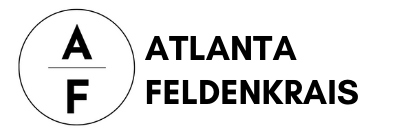How the Feldenkrais Method® Changed My Life
Part - 1
In my last post, I promised I would share how the Feldenkrais Method® helped me during a challenging period and ultimately transformed my life.
It made a difference for me in three key areas and I am going to tell you about one of them in this email:
1 – Knowing Myself
There was a time when I was a dedicated corporate warrior, willing to work around the clock to further my company’s goals, regardless of the personal cost.
My life was consumed by feverishly chasing dreams that were not my own.
It was no surprise that this caused discomfort, discontent, and a persistent undercurrent of anxiety lurking in the back of my mind, affecting every aspect of my life.
What is surprising, however, is that I didn’t—or couldn’t— stop engaging in behaviors that caused such ongoing dissatisfaction and dis-ease.
Dr. Moshe Feldenkrais famously said, “If you know what you are doing, you can do what you want.”
So why did I persist in actions that were clearly harming me?
The answer is simple: I didn’t know what I was doing.
If I had, I would have stopped. Any reasonable person would have.
At the time, I was unknowingly chasing an internal image of what a successful man should be—a worldly-wise, business-savvy, corporate go-getter.
Here’s the thing – there’s nothing wrong with aspiring to be a successful businessman.
The problem was that I didn’t even realize I had this image in my head, let alone understand how it got there. While climbing the corporate ladder taught me many valuable lessons, it was fundamentally unfulfilling, making every day a struggle, even the good ones.
I would love to say I recognized this glaring gap in my self-awareness on the very first day of my Feldenkrais training, but I didn’t.
We began with small yet crucial things I didn’t know about myself, such as the location of my hip joints, how I clench my jaw, or hold my breath while making an effort.
These might seem inconsequential, but consider this:
- Awareness of your hip joints and how they function is one of the most effective ways to keep your spine healthy and injury-free.
- Clenching your jaw does nothing to help lift a heavy sofa but does increase your susceptibility to jaw and neck pain, and may lead to a dentist visit down the line.
- Holding your breath unknowingly can occur under stress, while trying something new, or even while reading. Every time you halt your breath, it triggers a physiological and psychological event that affects your mood and well-being.
My training with the Feldenkrais Method® provided me with a precise and concrete way of knowing myself and my habits.
Getting to know myself was a crucial first step in directing my efforts towards things I wanted to do, goals I wanted to pursue. As I internalized this method of self-inquiry and self-experimentation, I now had the tools to improve my performance, comfort, and well-being in any situation.
You can see that this isn’t about a quick fix, but about embarking on a journey toward self-knowledge and self-mastery, so I want to leave you with a few questions to ponder.
We all have blind spots. How curious are you about discovering yours? If you had a magic mirror that could reveal your hidden habits, how much time would you spend looking into it?
On a scale from ‘quick fix’ to ‘lifelong journey’, where do you see your personal growth path? If your future-self sent you a schedule for achieving your dreams, how many hours a week do you think it would ask of you?
Imagine waking up feeling truly content – how recent or distant does that memory feel? What would your ideal day look like?
Stay tuned for more…





Leave a Reply
Your email is safe with us.